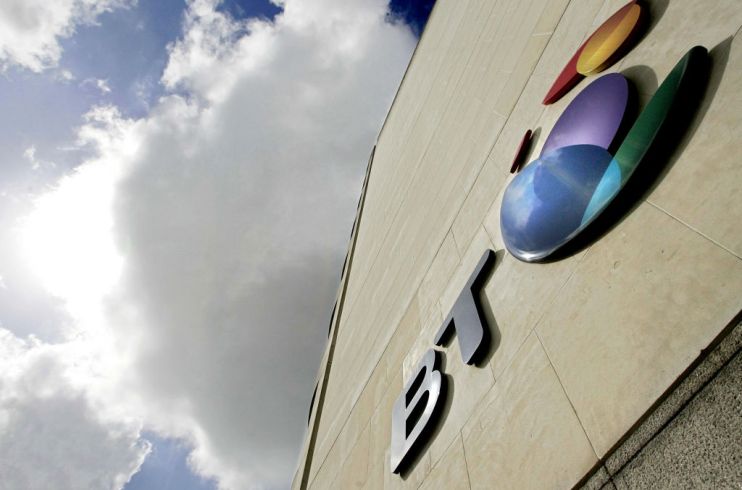City reacts with shock to Labour’s plans to part-nationalise BT

The City reacted with shock tonight to Labour’s plans to part-nationalise FTSE 100 giant BT and promise free full-fibre broadband for every UK household.
Labour unveiled the new £20bn policy late last night and said it would pay for its plan by levying a tax on tech giants such as Amazon, Google and Facebook.
Chief executive of trade group Tech UK Julian David said: “These proposals would be a disaster for the telecoms sector and the customers that it serves.”
Labour is set to announce the policy tomorrow at a speech in Lancaster.
Read more: Labour plays down BT renationalisation
Shadow chancellor John McDonnell will say: “This is public ownership for the future.”
And add: “Every part of this plan has been legally vetted, checked with experts, and costed.”
Labour said the capital cost of the roll-out of the full-fibre network would be in excess of £20bn, which it said it would pay for by taxing tech giants.
It also said it will nationalise “broadband-relevant parts of BT”, including Openreach (which runs much of the existing digital network), parts of BT Technology (which oversees the wholesale network), BT Enterprise (which sells broadband to business) and BT Consumer (which sells broadband to individuals).
Labour said the cost of part-nationalising BT would be set by parliament and paid for by swapping government bonds for shares.
Nicky Morgan, secretary of state for Digital, Culture, Media and Sport, slammed the plans, saying: “Jeremy Corbyn’s fantasy plan to effectively nationalise broadband would cost hardworking taxpayers tens of billions.
“Corbyn is clearly so desperate to distract from his party’s divisions on Brexit and immigration that he will promise anything, regardless of the cost to taxpayers and whether it can actually be delivered. What reckless idea will be next?”
Read more: Labour’s nationalisation plans are a risk to London’s investment appeal
The Conservatives had previously promised £5bn to back the UK roll-out of full-fibre broadband.
Mark Littlewood, head of think-tank the Institute of Economic Affairs, said: “To bring internet provision into the state’s remit would ensure all of the delays, waiting times and quality decline that go hand-in-hand with bureaucracy.”
Matthew Howett, principal analyst at Assembly Research, said: “Only one other country in the world has gone down this route, and for a good reason. It’s hard, expensive and fraught with difficulty. Australia’s NBN is years late, massively over budget and offering speeds and technology a fraction of the original political aim.”
A BT spokesperson said, “Whatever the result of the election, we’d encourage the next government to work with all parts of the industry to achieve that. It’s a national mission that’s bigger than any one company.”